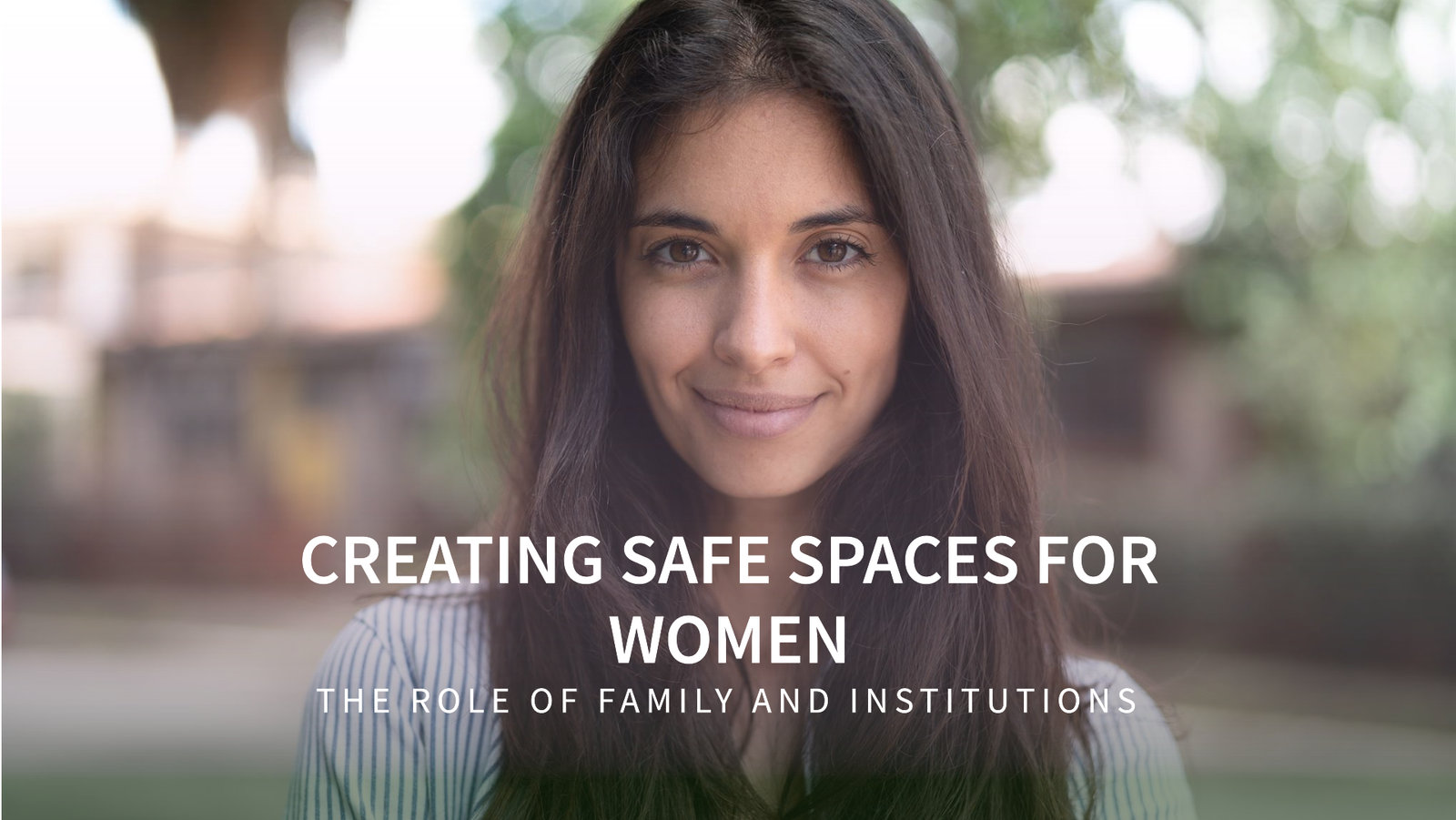Families, schools, and workplaces must take the lead in creating cultural change.
The recent case of a post-graduate trainee doctor brutally murdered at a state-run hospital has raised the same question again – why haven’t we been able to create safe spaces for women?
This prompts a deeper reflection on how societal institutions must step up as custodians of a culture of respect and equality, to create safe spaces for women.
Family, educational institutions, workplaces, media, and state-led institutions play a critical role in shaping and influencing an individual’s overall value systems. They lay the groundwork for the norms, perceptions, attitudes, and behaviours that are carried into adulthood. For example, a manager who believes that sexually charged remarks at the workplace can be taken casually has gained this understanding from observing similar attitudes from family, community, or the media. At a deeper level, the confidence that they can get away with impunity is due to a lack of awareness as well as lack of clear policies and framework at the macro planes of organisational, juridical, and policy-making. This further intensifies the belief that harassment of women in any form is justified.
So, how can we create change and ensure safe spaces for women within the family, in schools, and at the workplace? By going back right to the start, with the institutions that are well placed to create change at strategic and formative points in any individual’s life, irrespective of their upbringing.
- Family first – a foundation of respect
The family is the first, and most important institution since it shapes a child’s attitudes and values about gender roles and sets the foundation for values such as respect, equity, and empathy from a tender age. Parents who model gender equality, teach children about mutual respect and consent, reject violence in any form, and promote open communication create an environment where girls feel safe and empowered.
By offering a strong emotional support system, families can foster an innate sense of security and give women the courage to speak up and seek justice against any form of violence.
Mindful parenting and language are also important, to reshape the harmful attitudes that are handed down unknowingly. We frequently hear parents telling their sons to “act like a man” and not to cry, which undermines their emotional well-being and can lead to unhealthy behaviors. This is an example of how families impose harmful gender stereotypes on children. Stereotypical views, such as girls cannot play sports or that boys should not express sensitivity, are internalised at a young age and can negatively affect them as they grow up.
Families that prioritise girls’ education and encourage financial independence for women enable them to gain necessary life skills and resources to protect themselves and others, and boldly advocate for their rights.
Most importantly, families can help break stereotypes by challenging traditional gender roles and expectations by promoting equal division of responsibilities and decision-making. This can reduce the power imbalances that often lead to unsafe environments for women.
- Schools and educational institutions – imparting learnings for life
A school is a place where a child essentially enters a ‘learning environment’. Hence, it is vital for teachers to go beyond the call of duty and impart a worldview and keen understanding of gender equity and equality, forming healthy relationships, and the importance of consent. Educating students on gender sensitivity can prompt critical thinking, questioning familial attitudes and challenging negative stereotypes. This could, in many instances, lead to ‘reverse mentoring’ in the family as well. Moreover, education leads to empowerment – opening their minds by equipping girls with knowledge, understanding their rights, and giving them the confidence to be assertive. By providing safe spaces to discuss and report harassment and abuse-related issues, schools can truly set the stage to effectively address gender-based violence.
- Workplace culture – promoting safe spaces for women through equity and respect
Companies are a pivotal point at which an individual’s behaviour and attitudes can be challenged, with a clear call to change or face the consequences. Organisations are additionally incentivised to create and nurture safe spaces, as they bear the brunt of reputational damage through the actions of individuals employed with them.
So how can companies ensure they are creating an environment where women can feel safe, valued, and bring their best selves every day?
- By establishing and categorically communicating a clear zero-tolerance policy against any manner of harassment
- By providing mandatory training sessions ‘right down to the last man’ to recognise unconscious bias, prevent harassment
- By empowering every employee to raise their voice and help create a positive and safe work culture
- By setting up anonymous and therefore safe reporting and transparent grievance redressal processes for women to come forward and report issues without fear of repercussions
- By carrying out thorough, fair, and timely investigations into complaints and holding the offenders accountable irrespective of their position in the organisation
- By ensuring women are well-represented in leadership roles and across departments
- By empowering women talent through mentoring and sponsorship programs, and return-to-work programs
- By instituting flexible work policies and facilities to support new mothers
- By conducting regular pay equity audits to ensure women and men are paid equally for helming the same roles and responsibilities, along with equitable benefits
- By ensuring a workplace that is ‘safe by design’ – well-lit spaces with greater surveillance and security with no ‘blind spots’
- By facilitating the formation employee resource groups for women to openly discuss challenges, network and seek support from peers
- By conducting periodic surveys and using feedback to continuously refine policies and introduce new initiatives
Social institutions need to go beyond policy
While policies are in place to address women’s safety and rights, compliance is not enough to effect widespread societal change. For instance, the Protection of Women from Domestic Violence Act, 2005 and amendments to the Maternity Benefit Act of 1961, POCSO and POSH are great examples of the government doing its part to influence the broader legal and social climate in favour of women’s safety and fundamental rights.
However, deep-rooted social change can only be driven by formative societal institutions, in their entirety, to ensure a woman’s fundamental rights as a human being are safeguarded today but also light the path for future generations to follow.

